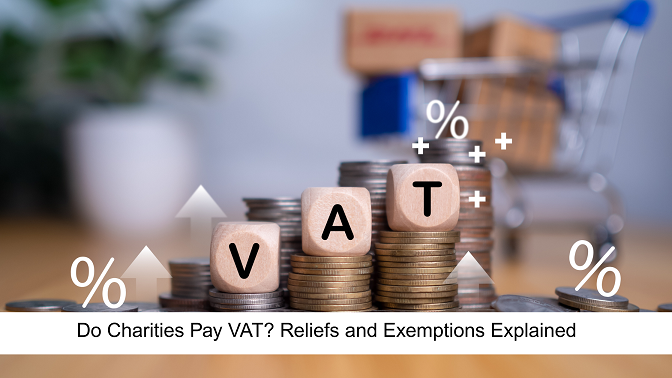
Charities are not automatically exempt and may have to pay VAT depending on their sales and activities. Some goods and services qualify for VAT reliefs or exemptions, helping charities reduce costs and comply with tax rules.
So, if you have a question, do charities pay VAT? Understanding which charity activities are exempt or taxable is key to managing VAT effectively and ensuring your charity follows the right procedures.
VAT (Value Added Tax) applies to most goods and services sold in the UK. However, charities and VAT work differently from regular businesses because of their non-profit status and public benefit purpose.
Here’s what you need to know about VAT for charities:
Though the system sounds complex, the key is knowing which of your charity’s sales are taxable, exempt, or zero-rated.
While asking Do charities pay VAT?, It’s important to note that some supplies are fully exempt while others qualify for partial relief.
Charity VAT exemption usually applies to:
However, not everything a does is VAT exempt. For example, selling products online, renting out property, or offering paid training might still have VAT implications.
That’s why it’s important to check every activity to see if an exemption or relief applies.
Charities can benefit from special VAT rates to help reduce costs on essential goods and services.
Charities pay a lower VAT rate of 5% on fuel and power when used for:
If less than 60% of fuel and power is used for these, only that part gets the 5% rate, and the rest is charged normal VAT.
Some goods and services can be bought without paying VAT if they meet the rules. These include:
It’s important to check the details for each category before claiming these VAT benefits.
Handling charities and VAT can be tricky, especially when you manage other accounting duties like payroll, bookkeeping, and self-assessment. To stay compliant with HMRC rules, charities should:
Professional accountants can offer expert advice on VAT registration, reliefs, and reclaim opportunities, helping you save both time and money.
Can charities claim back VAT only if they are registered for VAT? VAT-registered charities may claim back VAT on goods and services used for taxable business activities.
However, if a charity is not VAT registered, it cannot reclaim VAT on purchases from VAT-registered suppliers. Reclaiming VAT depends on meeting specific criteria set by HMRC and keeping proper records.
In conclusion, some charities may not pay any VAT, while others might pay VAT on certain goods and recover it on purchases. Understanding charity VAT exemptions and available reliefs ensures compliance and efficient financial management.
If you’re still unsure and asking yourself, Do charities pay VAT?, our expert team can help you understand your VAT position and claim the right exemptions.
You’re managing a charity or small organisation and need help with VAT, payroll, or bookkeeping. Our expert accountants are here to support you. Call us at 0208 8611685 or email info@phs-uk.co.uk to make VAT compliance simple and stress-free for your charity.